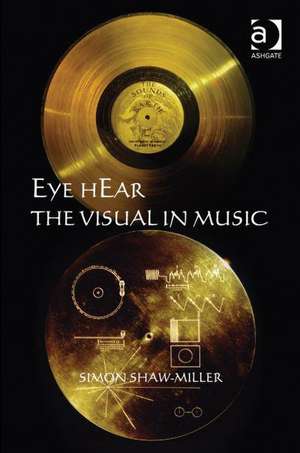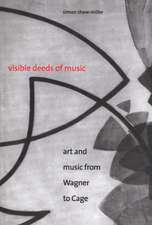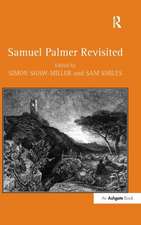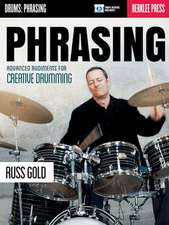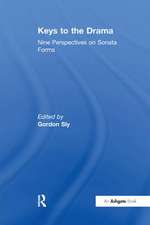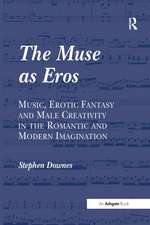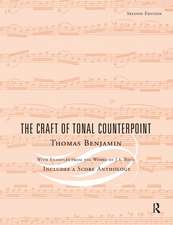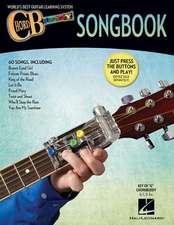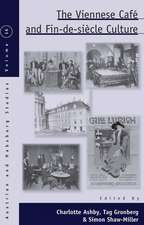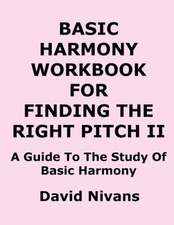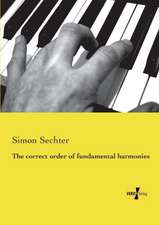Eye hEar The Visual in Music
Autor Simon Shaw-Milleren Limba Engleză Hardback – 20 noi 2013
Preț: 846.30 lei
Preț vechi: 1142.46 lei
-26% Nou
Puncte Express: 1269
Preț estimativ în valută:
161.95€ • 170.33$ • 135.32£
161.95€ • 170.33$ • 135.32£
Comandă specială
Livrare economică 19 decembrie 24 - 02 ianuarie 25
Doresc să fiu notificat când acest titlu va fi disponibil:
Se trimite...
Preluare comenzi: 021 569.72.76
Specificații
ISBN-13: 9781409426448
ISBN-10: 1409426440
Pagini: 232
Dimensiuni: 156 x 234 mm
Greutate: 0.65 kg
Ediția:New.
Editura: Taylor & Francis
Colecția Routledge
Locul publicării:Oxford, United Kingdom
ISBN-10: 1409426440
Pagini: 232
Dimensiuni: 156 x 234 mm
Greutate: 0.65 kg
Ediția:New.
Editura: Taylor & Francis
Colecția Routledge
Locul publicării:Oxford, United Kingdom
Cuprins
Contents: Preface; Introduction; Opening our eyes to hear more clearly: the culture of synaesthesia; Pan and panoptes: music aspires to the condition of art; Scores, Satie and the New York School: mingling image, music and text; White cubes and black monoliths: a fantasia; Outside the frame: liminal sights and sounds in the work of Cage and Warhol; Coda: art, music, seeing sound; Select bibliography; Index.
Notă biografică
Simon Shaw-Miller is the Professor of History of Art at the University of Bristol, UK, and Honorary Associate and Research Fellow of the Royal Academy of Music, London.
Recenzii
A Yankee Book Peddler US Core Title for 2014 and UK Core Title for 2013
Classified as 'Research Essential' by Baker & Taylor YBP Library Services
’By claiming boldly that music is a subject for art historians, Simon Shaw-Miller has laid down the gauntlet for musicologists in this remarkable book. Rich with references to historical and philosophical discussions on the links between music and visual art, Shaw-Miller has produced a work that is also replete with profound aphorisms and sharp insights into specific case studies. Seminal in its contribution to our understanding of the interlocking relationship between the visual and the musical, this book is no less than a manifesto for future scholarship.’ Alan Davison, University of New England, Australia
'What is distinctive and highly appealing in Shaw-Miller’s approach is the lens of synaesthesia through which the reader is invited to perceive the mingled nature of music as it calls to art, literature, and film. ... The tempo is swift in [his] jargon-free narrative. There is often a richness of ideas within the lightness and brevity of each chapter. ... While it is not uncommon to see authors start out their prefaces and Introductions with ambitious goals, Shaw-Miller is remarkably modest in articulating his: I want to claim music as a subject for art historians (p. xii). This he certainly does, not just with regard to the study of music in an academic context, but also in the different ways he invites the reader to experience sound: philosophical, spatial, social, spiritual, cosmic. [His} informative descriptions of image and sound are equally nourishing for scholars and students of music ... an aversion to creating simple parallels between music and art helps Shaw-Miller achieve what few scholars of such projects are able to pull off: a graceful motion through which readers might envisage sight/site in sound and hear music in the visual.' Music and Letters
Classified as 'Research Essential' by Baker & Taylor YBP Library Services
’By claiming boldly that music is a subject for art historians, Simon Shaw-Miller has laid down the gauntlet for musicologists in this remarkable book. Rich with references to historical and philosophical discussions on the links between music and visual art, Shaw-Miller has produced a work that is also replete with profound aphorisms and sharp insights into specific case studies. Seminal in its contribution to our understanding of the interlocking relationship between the visual and the musical, this book is no less than a manifesto for future scholarship.’ Alan Davison, University of New England, Australia
'What is distinctive and highly appealing in Shaw-Miller’s approach is the lens of synaesthesia through which the reader is invited to perceive the mingled nature of music as it calls to art, literature, and film. ... The tempo is swift in [his] jargon-free narrative. There is often a richness of ideas within the lightness and brevity of each chapter. ... While it is not uncommon to see authors start out their prefaces and Introductions with ambitious goals, Shaw-Miller is remarkably modest in articulating his: I want to claim music as a subject for art historians (p. xii). This he certainly does, not just with regard to the study of music in an academic context, but also in the different ways he invites the reader to experience sound: philosophical, spatial, social, spiritual, cosmic. [His} informative descriptions of image and sound are equally nourishing for scholars and students of music ... an aversion to creating simple parallels between music and art helps Shaw-Miller achieve what few scholars of such projects are able to pull off: a graceful motion through which readers might envisage sight/site in sound and hear music in the visual.' Music and Letters
Descriere
Eye hEar The Visual in Music employs the concept of the visual in proximate relation to music, producing a tension: 'is it not the case that there is a gulf between painting and music, between the visible and the audible? One is full of colour and light yet silent; one is invisible and marvellously noisy.' Such a belief, this book argues, betrays an ideological constraint on music, desiccating it to sound, and art to vision. The starting point of this study is more hybrid (and hydrating): that music is never employed without numerous and complex intersections with the visual. By involving the concept of synaesthesia, the book evokes music’s multi-sensory nature, stops it from sounding alone, and offers music as a subject for art historians.
